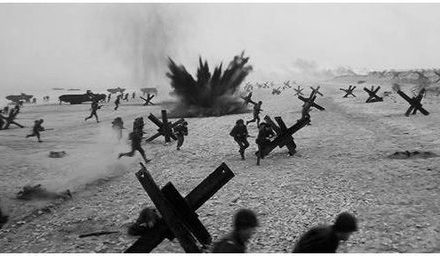My identity is as a saint–a holy one (Eph 1:1). In Christ, I am holy and righteous. I am a new creation. The old is gone and the new has come.
These are things I can easily spout out, but are these how I really perceive myself? Is this how I believe God perceives me? The reality is that my thoughts focus a lot on my short-comings. I find myself continually repenting of little thoughts, attitudes and actions. Not that this is bad. We need to repent and confess our sins. But it places my focus on sin, and on me, and on my short-comings. And if I’m honest, what do I see in other people? Things that need to be corrected, to be changed. It’s because I treat other people how I treat myself. But does God only see in me what needs corrected? Is that all he sees except for a few times when he sees me as a child he can enjoy for a few moments before he gets back to work turning me into something holy?
A couple of months ago I was riding in the car with someone who kept apologizing for everything. I confess, it drove me crazy. Now zoom backward almost exactly 500 years ago. A Catholic priest was sitting in a confessional getting terribly annoyed by one of his student priests/monks who came daily to confess every sin possible. Finally in exasperation he told the young man, “Go home until you have something to repent about!” The young man went home, thought about what he said and began to study Scripture. Martin Luther’s revelation of grace would change the world.
The problem with perceiving ourselves only as a sinner is that we focus more on sin and our ineptitude to stay holy than on God’s grace and his goodness. An employee is always concerned about whether or not they are doing a good job, because they know if they don’t, they will get fired or not get a raise. On the other hand if a child is continually concerned about whether or not they doing a good job, apologizing often, not sure if they are pleasing to their parents or exasperating them, then we would all probably think it was a sick family situation. Either the child has severe problems or the parents are over-bearing and critical. So why is it any different with God?
We are His children. It was through his good pleasure that he adopted us. A child is not in a continual state of self-correction, sending themselves to their room and such. It is the parents’ responsibility and judgment to know when to correct and discipline. A child has a lot of freedom to make mistakes. The parents step in when needed but a child trusts that they know when to step in.
Perhaps it would be a good thing if I thought more of myself as a saint, then perhaps I would begin to live out that identity. Not only that but if I began to see my fellow brothers and sisters in Christ as saints, then perhaps I would see and encourage that identity in them as well. And most of all, I think it would well up in me a greater gratitude for God’s mercy, grace and redemption. Time for a change.






